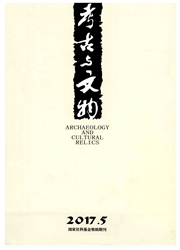

 中文摘要:
中文摘要:
本文首先对上博楚简《子贡》篇的文本进行了疏释。在此基础上,结合《管子》,对篇中“有邦之道”和“相邦之道”的含义进行了探讨,认为本文以及上博楚简的其他几篇简文都反映了春秋末期宗法制渐渐解体这样一个事实。另从文中相关人物的年龄,以及孔子在人生不同阶段的境遇来看,文中的“公”很有可能是鲁哀公,相似的故事模式也见于《荀子·子道》。
 英文摘要:
英文摘要:
The author first conducts a textual research on the chapterZigong in Shang Bo Jian (the Ban-boo Slips of the Chu State in Shanghai Museum)and explains the meaning of several temmologies. In juxtapose with transrrfftted texts such as Quand, the paper discusses the variety of meanings of the terms 'youban zhi dao ' (the way to be a King) and ' xiangbang zhi dao' (the way to be a nmister) in literature. The author suggests Zigong and several other chapters in Shang/Bo Jian all illustrate one important social change: the gradual collapse of the patriarchal clan system at the end of the Spring and Autumn period. At the end of this article, the author analyzes the identity of the figure ' gong' inZigong . CAven the age profile described in the chapter and Confucius's experiences in his different life stages, most likely gong is the Lord Ai of the Lu state, a parallel story mode has also been found in the Zidao chapter in Xunzi.
 同期刊论文项目
同期刊论文项目
 同项目期刊论文
同项目期刊论文
 期刊信息
期刊信息
